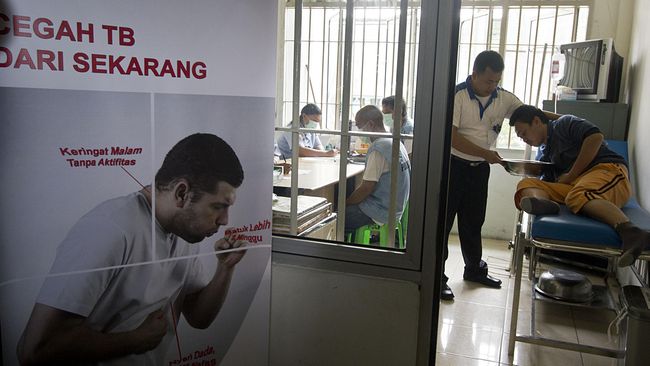World Health Organization (WHO) in 2016 reported 10.4 million new cases of tuberculosis (TB) and 1.4 million of them died from TB disease. Furthermore, Indonesia is ranked second highest for number of TB cases in the world. Prevention and eradication of tuberculosis to date has not been satisfactory. Some of the problems encountered are incomplete treatments. If treatment is not complete, it will increase the risk of disease severity leading to drug resistance. WHO has recommended the DOTS (Directly Observed Treatment Shortcourse) strategy as a strategy for TB control since 1995. The DOTS strategy involves the role of the drug-taking supervisor (PMO) for TB sufferers. Family involvement as a PMO is an effective way to cure sufferers and break the chain of transmission.
Tuberculosis does not only affect the patients but also their families, as they are shunned from the environment, feeling afraid because it cannot be cured, worrying about the economic burden, and many things that become psychological burdens for the families. The emergence of anxiety reactions in families taking care the sufferers will negatively impact the level of family support and self-efficacy. Families often experience anxiety about a decrease in the quality of life of patients, from fear of infection, loss or decline in economic capacity, the risk of complications and even the risk of death.
One of the efforts to increase the role and self-efficacy of families is through family psychoeducation therapy. Psychoeducation is thought to be able to reduce anxiety, increase self-efficacy and support. This research was conducted with Quasy Experiment pre-post test control group design to 56 families of TB sufferers. The research subjects were divided into two groups, 28 treatment groups and 28 control groups. Family psychoeducation is packaged in the form of an interactive module by providing family knowledge information to improve the drive for adherence to TB sufferers. The family psychoeducation module consists of 5 sessions: problem identification, knowledge management, anxiety management, TB prevention and transmission programs and management of family support and roles. The treatment group was given family psychoeducation therapy one meeting for 60 minutes, with the method of providing information, discussion and question and answer using a module media. The control group was only given health education like the standard procedure set by the Hospital Health Counseling Team (PKRS) at the hospital.
The results showed that family psychoeducation significantly affected anxiety reduction, increased family support, and increased self-efficacy families of TB sufferers. The information obtained by the patient’s family develops coping strategies to reduce the level of anxiety. Information about TB patient care management has an important role in shaping constructive respondent coping patterns. The psychoeducation module also lists how a person can perform self-management in overcoming anxiety to various levels. The process of exposure to family psychoeducation forms a pattern of interaction that changes the patient’s perceptions, attitudes and actions in dealing with problems. This change in outlook makes the patient’s family more adaptive in managing anxiety.
Family psychoeducation is able to increase support by forming the cognitive side of the patient’s family. Family psychoeducation provides an understanding that the family is a source of strength needed by patients to achieve successful treatment. The understanding in the next stage will form a behavior to support the patient in the form of informational, emotional, instrumental, and assessment support.
Family psychoeducation influences self-efficacy due to personal and interpersonal factors. The length of time a family member is diagnosed with Tuberculosis is related to the belief in the prognosis of the disease. A good disease prognosis will form a higher self-efficacy. The educational background also serves as the cognitive basis of the patient’s family. Adult with maturity can form self-confidence or self-efficacy.
Based on these findings, family psychoeducation is a nursing intervention based on scientific research. The body of knowledge development of medical surgical nursing, especially in the management of tuberculosis patient treatment can include psychoeducation interventions to families in order to achieve the effectiveness of therapy. The hospital is expected to make family psychoeducation as an educational approach targeted at the families of tuberculosis patients. The family psychoeducation program policy will be more optimal if it becomes a standard operating procedure (SPO) in the management of a comprehensive tuberculosis treatment.
Author: Ika Nur Pratiwi
Link related to the article above: https://www.psychosocial.com/article/PR270850/19115/





